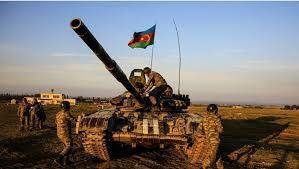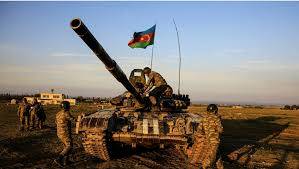The leadership of the separatist Nagorno-Karabakh region announced today, Sunday, that the Armenians in the area, numbering 120,000, will leave for Armenia because they do not wish to live under Azerbaijani sovereignty and fear ethnic cleansing. What is happening? And what does it mean?
Why are they leaving? The Armenians in Karabakh, a region internationally recognized as part of Azerbaijan but previously outside Baku's control, were forced to declare a ceasefire on September 20 after a swift military operation by Azerbaijan’s far more numerous and equipped army within 24 hours. David Babayan, advisor to the President of the self-declared Republic of Artsakh, told Reuters, "Our people do not want to live under Azerbaijani sovereignty. 99.9 percent prefer to leave our historical land." He added, "The fate of our poor people will leave a stain on the conscience of Armenians and the entire civilized world."
Azerbaijan claims it will ensure their rights and integrate the region into the rest of the country, but Armenians fear repression and ethnic cleansing. Azerbaijan denies any such intentions. Following the collapse of the Soviet Union, Armenians there freed themselves from Azerbaijan's nominal control and seized adjacent territories, known now as the First Karabakh War. Approximately 30,000 were killed and over a million, mostly Azerbaijanis, were displaced from 1988 to 1994. Armenian leaders in Karabakh stated that Russian peacekeeping forces will accompany those displaced by Azerbaijan’s military operation who want to leave for Armenia.
Where will they go? If 120,000 people cross the Lachin corridor to Armenia, the small country in the South Caucasus may face a humanitarian crisis. Armenian Prime Minister Nikol Pashinyan said Friday that authorities had prepared accommodation for at least 40,000 from Karabakh in Armenia. He stated today, "If real living conditions for Armenians in Karabakh and effective mechanisms to protect against ethnic cleansing are not established, the likelihood increases that Armenians will be expelled from their land as the only way to salvation." It remains unclear where 120,000 can be housed in Armenia, which has a population of only 2.8 million, before winter. The International Committee of the Red Cross has begun registering those looking for unaccompanied children and those who lost contact with their relatives.
What does Azerbaijan say? For Azerbaijan, the departure of Armenians from Karabakh represents a significant victory, seemingly marking the end of decades-long war and disputes over this region. President Ilham Aliyev stated that his "iron grip" has made the idea of an independent area for Armenians a thing of the past, and that the region will transform into a "paradise" within Azerbaijan.
What does this mean for the wider region? The mass displacement could alter the delicate balance of power in the South Caucasus, home to a mix of ethnicities and transit routes for oil and gas, where Russia, the United States, Turkey, and Iran compete for influence. Armenian Prime Minister Pashinyan noted that this crisis demonstrated that his country could not rely on Russia to defend its interests, to which Moscow responded that Armenia has few friends apart from Russia. Many Armenians hold Pashinyan responsible for the loss of Karabakh after he lost a war with Azerbaijan over the region in 2020. Days ago, protesters in the capital Yerevan called for his resignation. Pashinyan stated that unknown forces were seeking to incite a coup against him and accused Russian media of waging an information war against him. Russia maintains a military base in Armenia and considers itself the primary security guarantor in the region. This month, Armenia hosted joint military exercises with the United States, which criticized Azerbaijan's military operation. Azerbaijan enjoys the support of Turkey, a NATO member.




